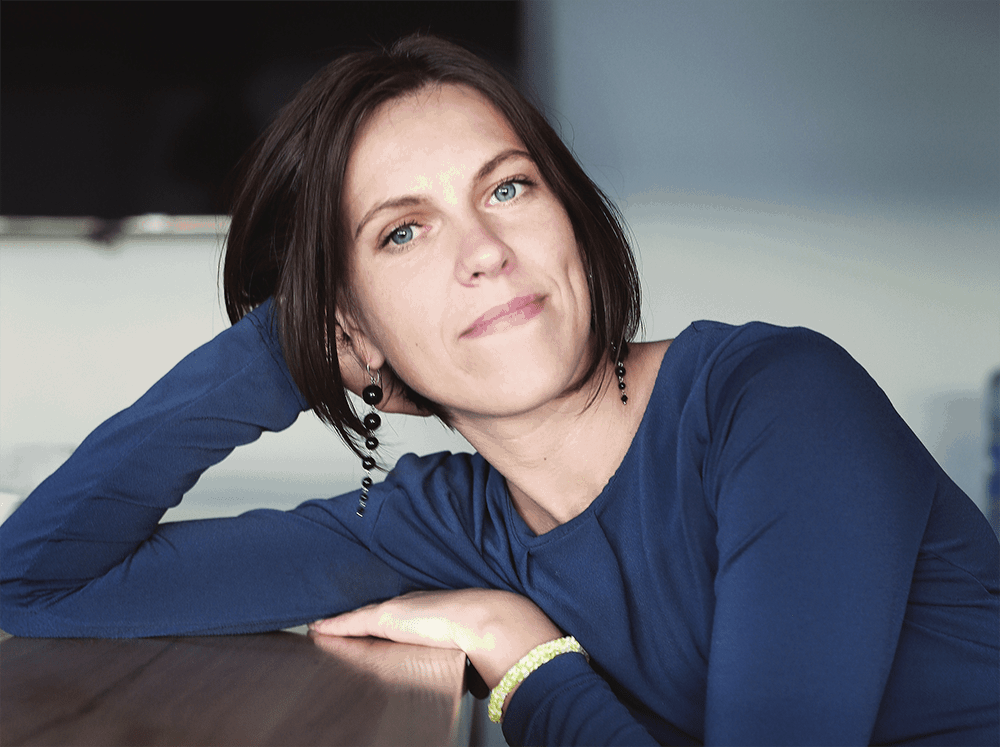25Jan2016
The adage warns not to count chickens before they are hatched. But Lithuania’s Milda Mitkute, 29, the founder of Vinted, a peer-to-peer global clothing marketplace, has done just that. And it has worked wonders!
Founded in 2008 as a website, where Lithuanian girls could swap their clothes, it has later grown, with a solid investment, into an international clothing business with 11 million members on a Vinted social networking service.
In 2013, Vinted raised 6 million euros from Accel Partners, a major venture capital and growth equity firm, and another 24.8 million euros at the beginning of 2014 from Accel Partners and Insight Venture Partners. The latter being one of the largest rounds ever for a Baltic-based startup. Value-wise, Vinted remains the highest-valued startup in the Baltics. Aiming to make second hand clothing the first choice worldwide, Vinted has already made its name as an avid ecology-friendly business promoter.
Nordic Business Report: If you were to think back, what are the most important milestones in your life?
Milda Mitkute: I would say one of the most important things worth mentioning in my life is the launch of Vinted. Its idea was born spontaneously in a party. So there was a very good chance that it could have just stayed an idea. However, Justas (Justas Janauskas, CEO of Vinted-L.J) and I were so passionate about it that we said “Oh, what the hell, let’s try. If it won’t work, it’s still a fun idea”. But it worked!
The second big milestone was Vinted’s launch in Germany in 2009, a year after its Lithuanian launch. Before this we used to think of ourselves as a local business. But with our German launch our mindset changed – we started to see ourselves as a potential global player.
The third milestone was a business angel joining our team. In the beginning, Mantas (Mantas Mikuckas, investor and executive director of Vinted-L.J) wanted to join as the investor, but he later fell in love with Vinted – so much so that he became a full-time employee. With Mantas at Vinted, our team became very strong. Before Justas and I had a dream to go global but we didn’t know how to do it. Mantas brought in the know-how and a hefty dose of passion to make Vinted a global movement.
And of course, Accel Partners’ investment in Vinted was another big milestone. It gave us the freedom to scale our idea globally much faster. We proved that we can enter new markets successfully in a relatively short time. This is how we became the most international second-hand marketplace in the world.
And as for personal growth, it’s hard to point out just a couple of personal milestones. There were tons of them. The whole journey made me a completely different person. I can honestly say that the last seven years have reshaped my personality.
NBR: Going back to your childhood, what are the biggest lessons that you’ve learnt in the years at a Catholic school and later gymnasium in Kaunas? Did you feel like plunging into business back then?
MM: When I was at school, I learned one very important rule – if you follow others, you lose your individuality. So I invested a lot into really hearing myself, understanding what I want and what my dreams are. At that time, I was always concerned what other people think of me. I always tried to look better, nicer, be more interesting. But that made me forget about myself. To be honest, I still care what people think of me, but less and less. And each day I find myself freer because of it.
Remembering myself in school – no, I could never have imagined being a business leader. It would have looked like something from a science-fiction book. To be honest, at the time, I didn’t have any skills to be successful in business. I was super shy, I was afraid of people, I was reactive, but not proactive in any area. But with time I noticed I needed to grow, especially after Vinted was launched. It was and still is quite challenging. But that’s the beauty of life, isn’t it?
NBR: How important have your parents been in your life? What are the inherited traits that you are most proud of?
MM: My father died when I was six years old, so I mainly grew up with my mother, sister, and grandmother. A female club, I can say…
My grandmother would always say: “Education is the key to a successful future.” So she encouraged me to study hard and be among the best students in a class. She showed me what determination is.
My mother is a very simple person: she is honest, open and loving. She taught me to love the world: people, animals, plants. Empathy is something I learned from my mother, too.
Of course, some traits I’m still struggling with – like being afraid to be different, for example. In my childhood, my family kept telling me: “When you are different, you draw attention. Extra attention is bad for several reasons: it shows you feel superior to others. That’s first. Second, it creates an opportunity for other people to be judgmental. But now, in retrospect, I see it as a Soviet mentality that was still very much alive throughout the school years.
NBR: After the graduation from secondary school, you enrolled Vilnius University’s Kaunas Faculty, where you studied Culture Management. Did you feel being in your shoes there?
MM: I did. Cultural management made a big influence on my personal world. I learned that dance, theater, and music are food for my soul. There were three subjects that changed my life: sociology, anthropology, and philosophy. I started to see the world through different eyes.
University did not give me practical skills. But it gave me a way of thinking. And I believe it’s much more valuable.
NBR: You’ve definitely been asked this questions hundreds of times: how did you get started with Vinted? What does the name mean, by the way?
MM: Indeed, many times. As I mentioned before, I never dreamed of being a businesswoman. When Vinted was launched, I had to learn what being in business really means. I’m still learning, by the way. Vinted was born when I was moving from my native town to the capital to study. I had to move my whole closet and at that time, I realized how many things I don’t wear anymore. Many items still had tags on, or I had worn them only a few times. Lots of stuff in my closet, but still nothing to wear. And a thought popped into my mind that I must not be the only girl in the world in this situation. It seems I was right.
And then, a few days later, I was invited to a housewarming party where I met Justas, with whom I started Vinted. I remember telling him about my idea at around 2 am, and he said: “Why not, we should try.” So in two weeks we created the first version of Vinted and released it. It was an unexpected success. We didn’t understand what was happening: more and more members were joining every hour. Media coverage was also big: radio stations, news portals started calling me and asking for interviews. Then we realized we had started something big.
The name “Vinted” appeared a few years after the launch. We changed the name of our project to Vinted to have one global name, with the aim of making our brand internationally recognizable.
NBR: How has Vinted expanded over the years? Can you, please, share some of the numbers reflecting the performance of your company in Lithuania and abroad?
MM: For the first three years, Vinted was a hobby project. Justas and I had other jobs. Our first full-time employee was hired three years into the project. Now there are 240 people in our team, working in Vilnius, Paris, San Francisco, Warsaw, and Munich. In total, Vinted has 11 million members in 8 countries.
NBR: How tough is competition in the clothes-swapping market?
MM: Our competitive environment is very tough, especially in the US market. There are ever more players joining the clothes-swapping market.
NBR: Your company is known as manodrabuziai.lt in Lithuania. Why did you choose a different name in Lithuania?
MM: At the beginning, all markets had projects with local names – not just in Lithuania, but in Germany and the Czech Republic too. Only a few years later, when the business started expanding, we agreed to use the name Vinted and make it global.
NBR: How has the year of 2015 been to your company and you personally? Is there anything you regret not having achieved in 2015?
MM: The year of 2015 has been a year of focusing on our product. Our goal is to make the best product in the world that our members love. I think we achieved that. Therefore, we are now ready to scale our idea globally even faster.
Of course, there are many things we could have done better or faster, but I don’t regret anything we’ve done this year. But if I had to name one thing, I would say we could have expanded to new countries in 2015 simultaneously while focusing on our product.
NBR: With your eyes set on all the destinations worldwide, I wonder how your regular weekday looks like?
MM: Busy, busy and very busy (grins)…
I’m leading the user acquisition team at Vinted. It’s a team that’s responsible for Vinted’s growth. So my main duty is to make sure we are on track, that we are reaching our goals. This is to describe the average daily tersely, without going much into the details…
NBR: How challenging is it for a Lithuanian woman to make it to the top of the business world? Can you, please, share some of your personal experience?
MM: To be honest, I have never thought about this. People, media always show women in business, but I never made a big deal of that. Of course, there are many more men in business, but I see that it’s changing. I believe that everything starts with how women perceive themselves. If they think they are less smart, less competent, then yes, it’s a lot harder to make it to the top. And the opposite is true as well: if a woman thinks she is smart enough, she can compete with anyone. I think it’s mainly a psychological thing.
NBR: Nordic Business Report named you among top 20 women in business in Northern Europe in 2015. How gratifying was it to you?
MM: It was really pleasant, though surprising. I’m not a well-known person in Europe. I just do what I like, and I’m proud of building a movement that’s changing the world. Vinted changes people’s shopping habits. It also has an impact on our planet: each time a person shops on Vinted, they decrease demand for brand new items. I consider this a proof that I’m on the right track.
NBR: If you were to meet a schoolgirl from rural Lithuania, what would you tell her?
MM: I’d tell her this: “Don’t be afraid to discover yourself.” Remember, you can change anything, and it doesn’t matter if you are 20, 30 or 40 years old. People are learning throughout their life. And don’t put too much pressure on yourself when you are a teenager. Life is easier than you think.
NBR: Nice! What kind of a boss are you?
MM: I think I’m a “female style” boss, meaning that I lead with intuition. I find that people are the most important asset of a startup or any company. If you want to change the world, you need to have passionate people around you. Without people, Vinted is nothing. So I do focus a lot on making my team happy and motivated. It’s not me or shareholders who are creating the Vinted movement. It’s each and everyone of our 240 employees who are doing this.
NBR: What traits do you look for when hiring?
MM: We select new people very carefully. It’s very important to keep the right spirit in the team. Therefore, we are looking for passionate, lean-thinking, result-oriented people. Also, we always consider if the candidate is a team player. We believe that people working in teams are a much stronger power than people working alone. Also, we avoid people who’ve worked at big corporations, as they are not as adaptable as startup people. And of course, it’s very important that the new person would live the Vinted values: respect, trust, openness, passion, self-development.
NBR: Where do you usually look for new employees? How many of them work remotely?
MM: We are a well-known company in Lithuania, and we have an image of one of the best Lithuanian employers. So we get many emails from people willing to work at Vinted. Also, our current team members recommend Vinted as one of the best places to work. If that is not enough, we use LinkedIn. Abroad we usually work with headhunters or, again, use LinkedIn.
There are around ten employees working remotely. Others come to the office every day.
NBR: Is there anything that irritates you in Lithuanian business mentality? What do you believe needs to be improved?
MM: A few years ago, I would have said the general mindset was that we are a small country, and you cannot do anything about this; you can’t start something with global proportions here. I don’t think that is true anymore. I see that people have changed their approach. Actually, instead of focusing on local markets, they did go global. I believe it will have a big effect in the nearest future, and we should have an increasing number of successful global products from Lithuania.
Lithuania’s business environment is improving very fast, as a matter of fact. A new generation of people is coming to business, and they drive changes which come from an international experience. The good thing is that our government also recognizes this as a priority. Therefore, new programs and initiatives that support businesses keep appearing.
As to the business environment, I would love to see more support for beginner-level companies. For example, through lower taxes, easier funding for new businesses, the possibility to get professional consultancy services and coaching.
NBR: What do you believe Lithuania needs to do to boost investments?
MM: In my opinion, global PR is one element that’s missing, and that could significantly improve the current state of affairs when it comes to investments. We have plenty of educated people, and we already have successful examples of global companies moving to Lithuania, Uber, Barclays, Western Union, Citco, and Adform, to mention a few. Infrastructure is also well developed in Lithuania – we have the highest internet penetration rate in Europe.
NBR: What are the other challenges besides business that you’d like to try out yourself?
MM: Oh, it’s a very wide topic. I will name just a few things I’d love to try, but there are much more. I would like to take part in a dance performance, to be a barman for at least a month somewhere on a sunny beach and, of course, be the assistant of a cool restaurant chef.
I like different activities, as they reveal the hidden sides of my personality. And that is the most inspiring part.
NBR: Where would you like to end up being in, say, ten years from now?
MM: In ten years, I would love to see Vinted having reached its vision: make second hand the first choice, worldwide.
NBR: What do you expect from the year of 2016?
MM: Speaking of 2016, I wish Vinted proves how global we can be. 2016 is the year of expansion!


